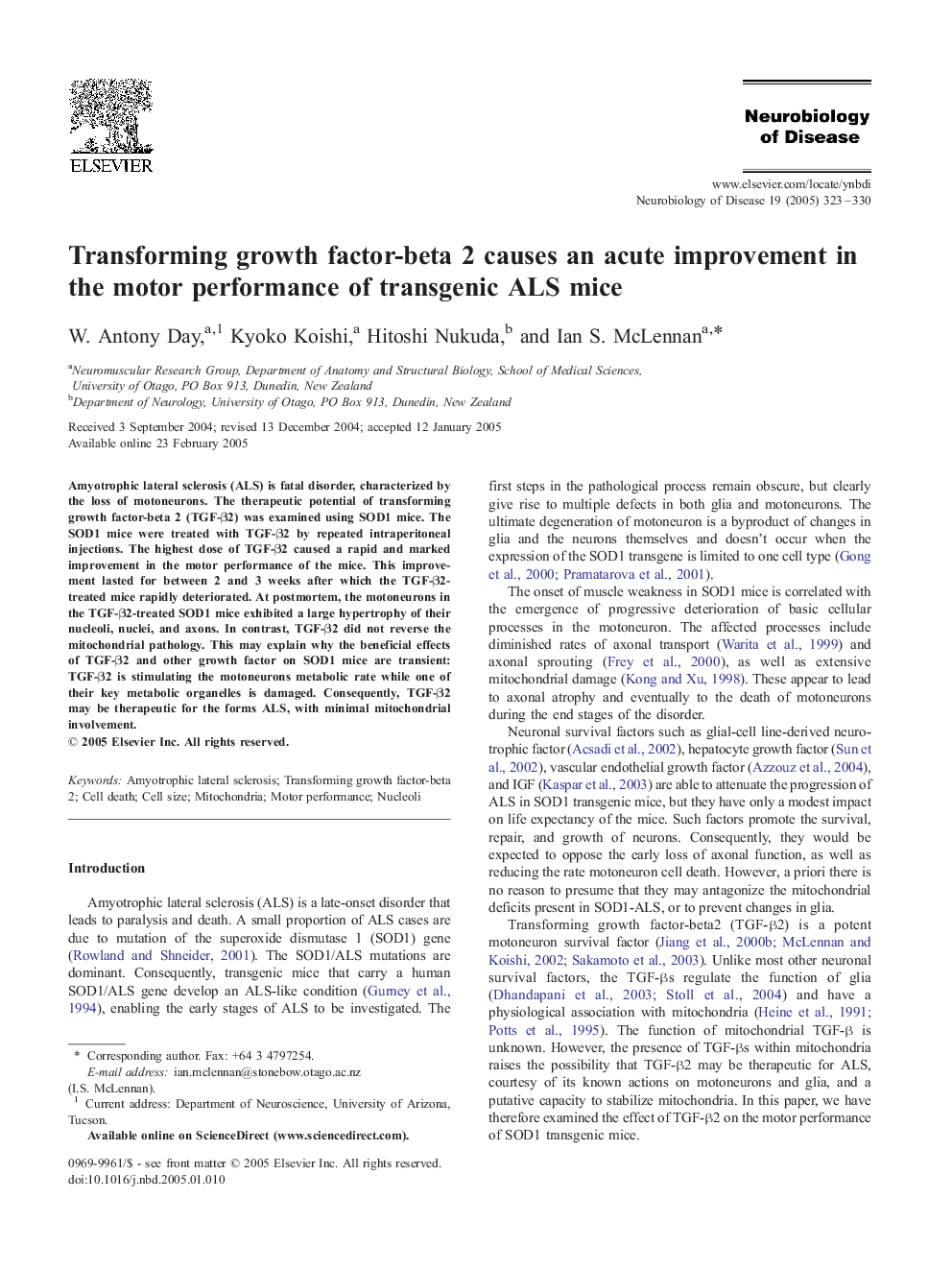| Article ID | Journal | Published Year | Pages | File Type |
|---|---|---|---|---|
| 9989748 | Neurobiology of Disease | 2005 | 8 Pages |
Abstract
Amyotrophic lateral sclerosis (ALS) is fatal disorder, characterized by the loss of motoneurons. The therapeutic potential of transforming growth factor-beta 2 (TGF-β2) was examined using SOD1 mice. The SOD1 mice were treated with TGF-β2 by repeated intraperitoneal injections. The highest dose of TGF-β2 caused a rapid and marked improvement in the motor performance of the mice. This improvement lasted for between 2 and 3 weeks after which the TGF-β2-treated mice rapidly deteriorated. At postmortem, the motoneurons in the TGF-β2-treated SOD1 mice exhibited a large hypertrophy of their nucleoli, nuclei, and axons. In contrast, TGF-β2 did not reverse the mitochondrial pathology. This may explain why the beneficial effects of TGF-β2 and other growth factor on SOD1 mice are transient: TGF-β2 is stimulating the motoneurons metabolic rate while one of their key metabolic organelles is damaged. Consequently, TGF-β2 may be therapeutic for the forms ALS, with minimal mitochondrial involvement.
Related Topics
Life Sciences
Neuroscience
Neurology
Authors
W. Antony Day, Kyoko Koishi, Hitoshi Nukuda, Ian S. McLennan,
